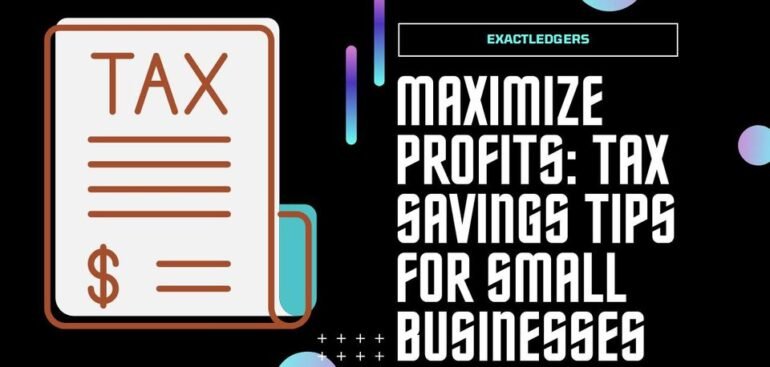How Much Should I Save for Taxes Small Business? Expert Tips
Introduction
As a small business owner, understanding how much you should save for taxes is crucial for financial stability and compliance. This guide provides expert tips to help you navigate tax planning effectively.
What Percentage of Revenue Should Small Businesses Set Aside for Taxes?
Determining what percentage of your revenue to set aside for taxes depends on various factors, including your business structure, income level, and location. Typically, small businesses are advised to set aside 15-30% of their revenue for federal and state taxes.
Importance of Tax Planning for Small Businesses
Effective tax planning not only ensures you meet your tax obligations but also optimizes your cash flow and minimizes tax liabilities. It involves forecasting income, understanding deductions, and staying compliant with tax laws.
Steps to Calculate Your Small Business Tax Savings
- Calculate Your Gross Revenue and Expenses
- Start by calculating your gross revenue and deducting allowable business expenses. This gives you a net income figure, which forms the basis for your tax calculations.
- Understand Your Tax Deductions
- Familiarize yourself with deductible expenses such as office supplies, utilities, employee salaries, and business travel. These deductions reduce your taxable income, lowering your overall tax liability.
- Estimate Your Taxable Income
- After deducting expenses from your gross income, estimate your taxable income. Use tax brackets and rates applicable to your business structure (sole proprietorship, LLC, etc.) to determine your tax liability.
- Factor in Self-Employment Taxes
- Self-employed individuals must pay both income taxes and self-employment taxes (Social Security and Medicare). Calculate these additional taxes separately to ensure accurate savings planning.
Strategies to Maximize Small Business Tax Savings
Implementing these strategies can help maximize your tax savings:
- Take Advantage of Tax Credits: Research and apply for tax credits applicable to your business, such as research and development credits or energy-efficient equipment credits.
- Contribute to Retirement Accounts: Contributions to retirement accounts like IRAs or 401(k)s not only secure your future but also offer tax benefits in the current year.
- Keep Impeccable Records: Maintain organized records of all income and expenses throughout the year to substantiate deductions and reduce the likelihood of tax audits.
Best Practices for Small Business Tax Planning
To optimize your tax planning efforts:
- Consult with a Tax Professional: Engage a certified accountant or tax advisor who specializes in how much should i save for taxes small business. They can provide personalized advice and ensure compliance with tax laws.
- Stay Updated on Tax Law Changes: Tax laws are subject to frequent changes. Stay informed about updates that could affect your business tax liability and savings strategies.
Introducing ExactLedgers as Your Tax Partner
To further simplify your tax planning and ensure you’re always on top of your tax obligations, consider partnering with ExactLedgers. ExactLedgers is dedicated to helping small business owners like you navigate the complexities of tax planning and compliance. With their expert guidance, you can accurately determine how much to set aside for taxes, maximize your deductions, and avoid costly penalties.
Their team of experienced tax professionals offers personalized support and cutting-edge tools to streamline your financial management. By working with ExactLedgers, you can focus on growing your business while they handle the intricacies of tax planning and compliance.
ExactLedgers | Your Companion for Tax Services
ExactLedgers is not just your tax partner but your comprehensive companion for all tax services. They offer a wide range of services, including tax preparation, tax planning, and ongoing tax support tailored to meet the unique needs of your small business. With ExactLedgers by your side, you can ensure that every aspect of your tax obligations is managed efficiently and effectively.
Conclusion
Understanding how much to save for taxes as a small business owner is essential for financial health and compliance. By following expert tips and implementing strategic tax planning, you can effectively manage your tax obligations while optimizing savings and profitability.
Remember, proactive tax planning is key to navigating the complexities of small business taxes confidently. Plan, stay informed about tax law changes, and consult with tax professionals when needed to ensure you’re on the right track for financial success.
FAQ
- What percentage of revenue should small businesses save for taxes? Small businesses typically save 15-30% of their revenue for federal and state taxes.
- How often should I review my tax savings strategy? It’s best to review how much should i save for taxes small business strategy quarterly or semi-annually to adjust for changes in income, expenses, and tax laws.
- What are estimated quarterly taxes, and how do I pay them? Estimated quarterly taxes are payments made four times a year to the IRS and state tax agencies by self-employed individuals and small business owners. You can pay them online through the IRS website or by mail using Form 1040-ES.
- Are there specific deductions available for small businesses? Yes, small businesses can deduct expenses like rent, utilities, office supplies, employee wages, business travel, advertising, and professional services from their taxable income.
- What are the consequences of not saving enough for taxes as a small business owner? Not saving enough for taxes can lead to financial strain, penalties, and interest charges from tax authorities. It’s crucial to accurately estimate and set aside funds for taxes to avoid cash flow issues and legal problems.

